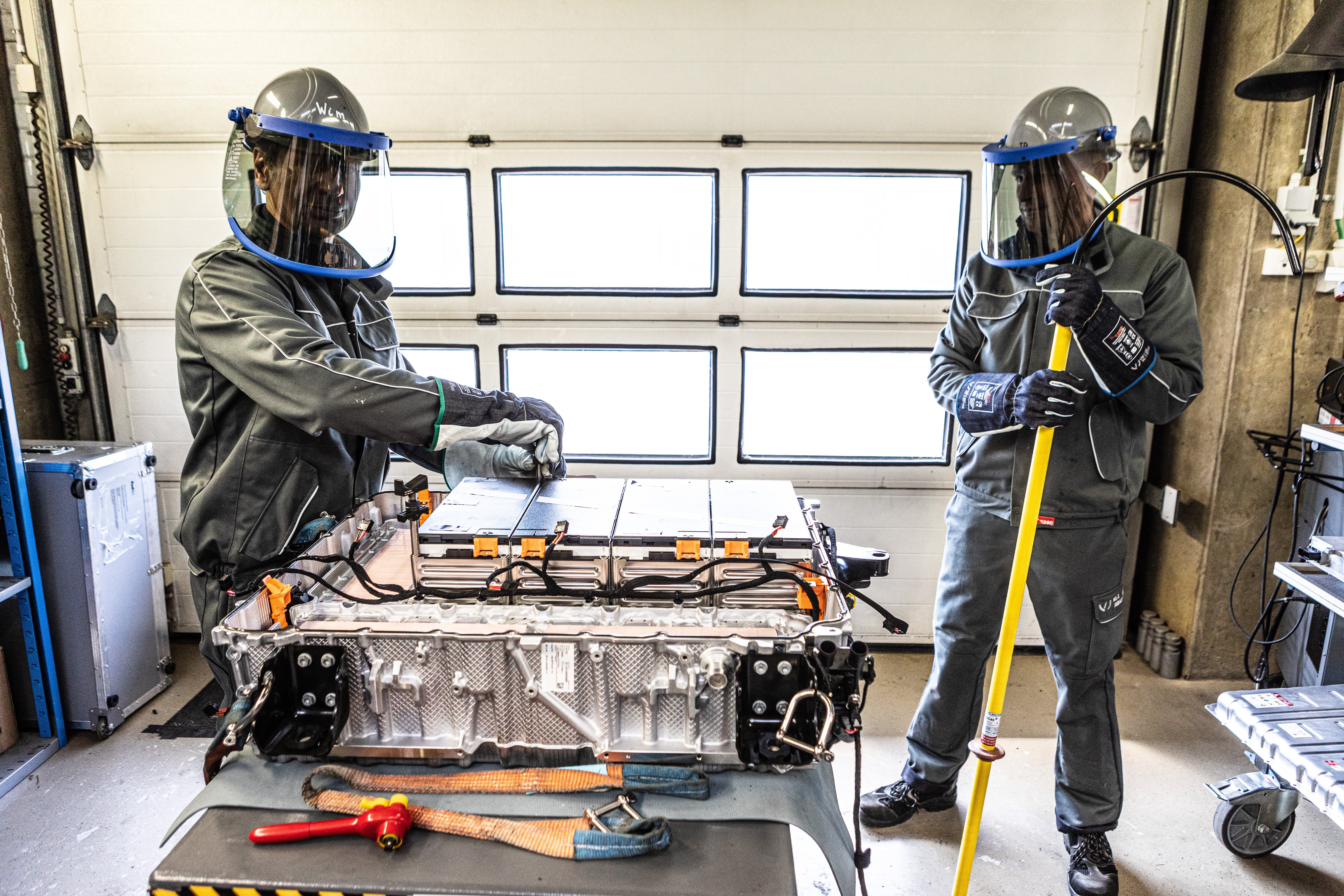Expert Guidance on EU Batteries Regulation from Kiwa and Vinçotte

In a strong move towards fostering sustainability and environmental responsibility, the European Union has enacted the EU Batteries Regulation 2023/1542. This regulation replaces the EU’s previous regulation on batteries sold in the market and partly focuses on their environmental impact. Moreover, it comprises mandatory carbon footprint verification requirements and other stringent regulations, signifying a new era for businesses in battery production, import, and sales within the EU.
Evert Vermaut, Team Lead and Consultancy Manager at Vinçotte, tells us about the challenges and urgency of this regulation.
Tackling Environmental Challenges in Electromobility
“We have specifically seen that growing demand for electric vehicles and the production and disposal of their large batteries pose huge environmental concerns,” explains Evert. “This is due to the extraction of raw materials like lithium, cobalt, and nickel, often associated with adverse social and environmental impacts.”
“As one can imagine, the carbon footprint of battery manufacturing, transportation, and end-of-life management challenges achieving net-zero emissions targets. Addressing these sustainability challenges requires proper strategies prioritizing circularity, resource utilization, and responsible end-of-life management practices. This will help mitigate environmental degradation and promote a sustainable future,” furthers Evert.
Kiwa and Vinçotte’s Support to Meet EU Batteries Regulations
As the regulatory landscape evolves, companies face the challenge of navigating these changes effectively. That’s where Kiwa and Vinçotte come in. Vinçotte, part of the Kiwa Group, brings a wealth of expertise and experience to the table. Together, we are committed to ensuring regulatory compliance for businesses worldwide, offering comprehensive testing, inspection, and certification services (TIC) to support businesses in meeting the requirements of the EU Batteries Regulation.
“Our commitment to assurance ensures that businesses can confidently comply with these regulations while advancing their sustainability goals,” states Evert, who has over two decades of experience in environmental engineering. "At Vinçotte, our role involves third-party verification. We ensure data compliance, conduct gap analyses, and provide guidance on meeting regulatory requirements."

Key Provisions of the EU Batteries Regulation
The EU Batteries Regulation introduces key provisions to drive sustainability across the battery lifecycle. Evert highlights three critical aspects Vinçotte verifies for battery manufacturers entering the European market: carbon footprint, recycled content, and supply chain due diligence. There is a mandatory third-party verification by a notified body for all three aspects.
“Manufacturers must calculate the carbon footprint for every battery type per manufacturing plant. In the future, the European Commission will determine carbon footprint performance classes and maximum carbon footprint thresholds. The same goes for recycled content, where Europe has set minimum targets for using recycled cobalt, lead, lithium, and nickel. Due diligence policies should identify and mitigate adverse social and environmental impacts in the battery manufacturer's supply chain. Manufacturers will have to publicly report the impacts identified and the measures taken to reduce them," Evert explains. Furthermore, he underscores the urgency for companies to address compliance gaps, especially regarding carbon footprint regulations: "The urgency of addressing carbon footprints will be enforced starting in the second half of next year for electric vehicle batteries. Companies shouldn't delay action, and we urge them to begin as soon as possible."
Another of the regulation's central mandates is the implementation of a battery passport, which will provide consumers with detailed information and ensure transparency. The battery passport, mandatory for large batteries, will share information such as the recycled content, the carbon footprint, nominal and maximum voltage, expected lifetime, round-trip efficiency, and many more. The passport will be regularly updated during the use phase and when it is prepared for a second life. Moreover, the battery passport will be accessible by simply scanning a QR code.
Sustainable Innovation with Battery ‘Tagging’
Evert additionally discusses Digi-tags, a technological solution developed by Vinçotte to facilitate compliance with the regulation's requirements. "Digi-tags offers a solution for QR code tagging for large batteries. It links to their battery passport, ensuring dynamic access to pertinent data while maintaining confidentiality per regulations," Evert explains.
"We know that innovations like Digi-tags play a crucial role in meeting the challenges posed by the EU Batteries Regulation," he continues Evert. "Automation is becoming integral, aiding both calculation and verification processes regarding battery regulations."
Towards Tailormade Solutions
With Kiwa and Vinçotte, businesses can more easily and confidently navigate these regulatory changes, ensuring compliance while advancing their sustainability objectives.
"Through our extensive experience and deep understanding of the regulations, we are well-positioned to provide reliable and tailormade support and guidance,” concludes Evert, “We stand ready to be a trusted partner to companies guiding them on a journey towards a more sustainable future.”
|
|
| Evert Vermaut | Teamlead & Consultancy Manager, Discrete Manufacturing & Logistics, Vinçotte |
Stories from around the world
Would you like to know how our Kiwa colleagues use their expertise to help shape a better, more sustainable and fair world?
